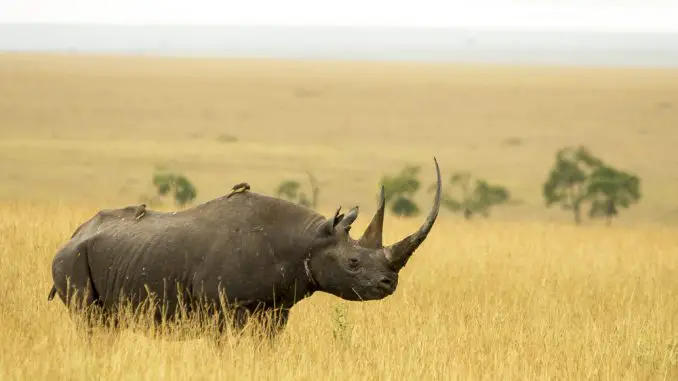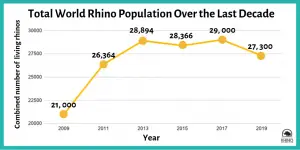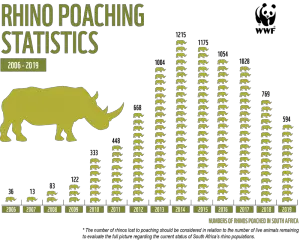
Over ten rhinos are still shot per week in South Africa, but it’s significantly fewer than 2018 and a halving of five years. According to WWF, many years of work against poaching has contributed to the trend.
According to the 2019 State of the Rhino report from the Rhino Foundation, the number of rhinos, of all five species, has decreased from 29,000 to 27,300 in the past two years. This is a new trend after the populations have been relatively stable since 2013. However, the development is clear in a longer perspective. 100 years ago, there were 100,000 copies of lace rhinos alone.

Source Rhinos.org
In South Africa, however, there is a positive trend. The number of poached rhinos is decreasing, for the fifth year in a row, according to the country’s Ministry of the Environment. In 2019, there were 594 rhinos in South Africa, more than ten per week, compared with 769 the year before and 1215 during the 2014 peak year.

– It is a step in the right direction for the rhinos of South Africa and a confirmation that hard conservation work is paying off. But the situation for the rhinos is still serious and preventive work to reduce the poaching must continue, says Håkan Wirtén, secretary general of the World Wildlife Fund WWF.
Among other things, WWF participates in financing and working to guard reserves where rhinos can live more safely, research on rhinos and improved surveillance through training, equipment and vehicles for park guards.
The investment seems to have yielded results; In 2019, 332 people were arrested for rhino trafficking in South Africa and 145 were convicted. The arrested poachers may also have produced results for South Africa’s elephants. In 2018, 71 elephants were shot in the country. 2019 only 31.
Allan Carlson, WWF’s expert on Africa and the poaching, says that even the fight against the poaching in Kenya is getting better. In 2019, only four were killed by about 770 tip rhinos.
– On the other hand, we see a troublesome poaching of rhino in South Africa’s neighboring countries, such as Namibia, Botswana and Zimbabwe. They need to increase cooperation to deal with corruption and achieve more effective international cooperation on the crime syndicates in Asia that supply the market with rhino horns, he says.
Leave a Reply